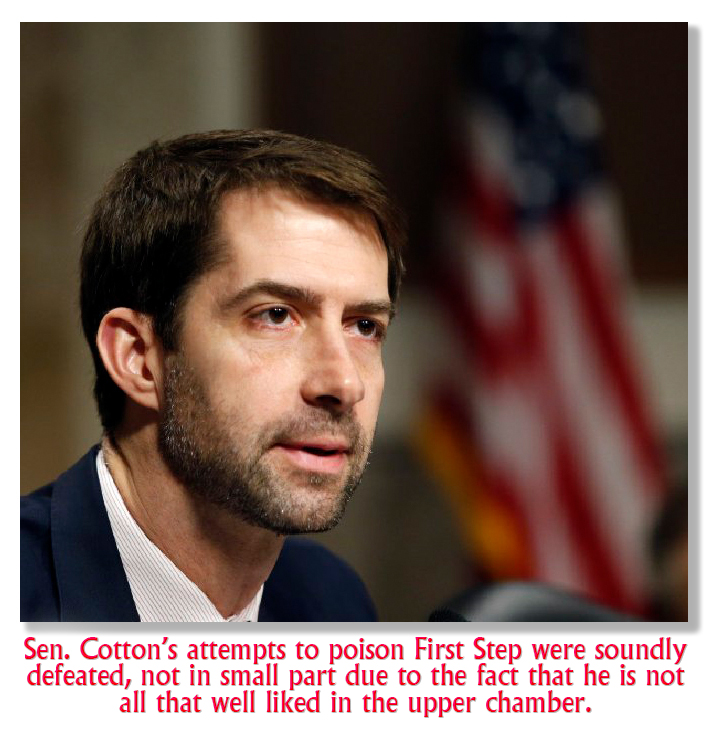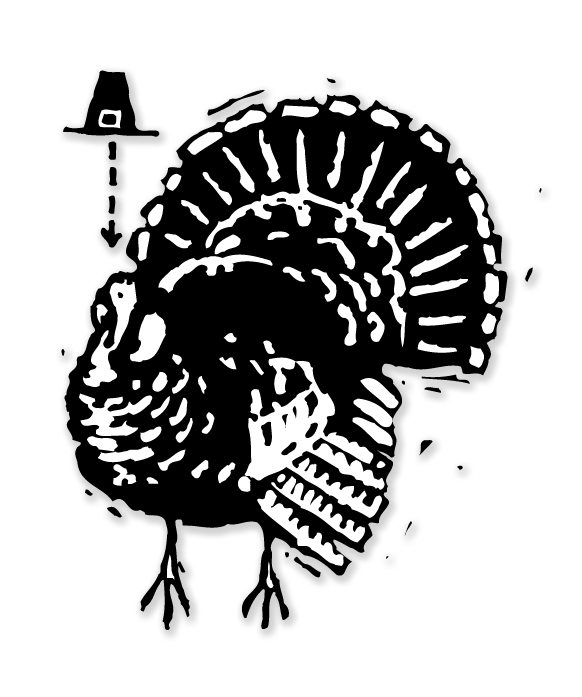We post news and comment on federal criminal justice issues, focused primarily on trial and post-conviction matters, legislative initiatives, and sentencing issues.

PATTERN AMENDMENTS COULD BENEFIT THOUSANDS
The Dept. of Justice told Congress last week that it will soon roll out a new version of the PATTERN recidivism risk measurement system containing adjustments it says will improve accuracy, possibly benefitting up to 33,000 federal prisoners.
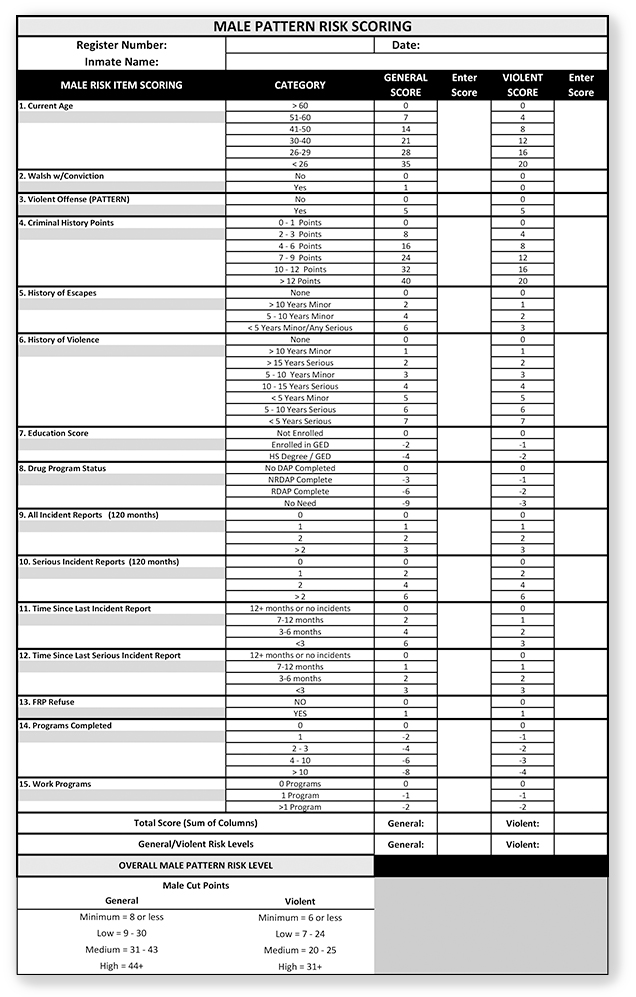 The modifications, which come after criticism was leveled at PATTERN last January for implicit racial bias, are intended to significantly increase the number of black and Hispanic men in prison who are eligible to take classes or productive activities that will result in them getting earn time credits (ETCs).
The modifications, which come after criticism was leveled at PATTERN last January for implicit racial bias, are intended to significantly increase the number of black and Hispanic men in prison who are eligible to take classes or productive activities that will result in them getting earn time credits (ETCs).
DOJ estimated that 36% more black men and 26% more Hispanic men might qualify as minimum or low risk under the change, with smaller increases for black and Hispanic women.
Even with the changes, DOJ admitted in last week’s report, it is still unable to resolve other racial disparities (such as continued overestimating the number of black women compared to white women who will commit new offenses after release).
DOJ told Congress that even after the anticipated release of a modified PATTERN early next month, it would continue to work “to ensure that racial disparities are reduced to the greatest extent possible.” That could be difficult. Most of that disparity, according to Melissa Hamilton, a law professor at the University of Surrey, results from what happens before prison and application of the PATTERN metrics. “When using factors with criminal history, prison discipline and education, the tool is almost inevitably going to have disparities — unless they correct for systemic biases in policing, prosecution, corrections, and education,” she said.
Hamilton told a House oversight committee last January that up to 11% of male and 10% of female inmates have been assigned wrong risk categories due to errors in PATTERN:
• PATTERN was designed to score risk factors at release instead of at the time of assessment. For example, if a 39-year-old man comes in for a 15-year sentence, he has an age risk factor of 21. But PATTERN should assess his age at release (52 years old), which is only 7. The difference is 14 points.
• PATTERN disproportionately predicts higher. Hamilton said, “a choice has been made to design PATTERN to perform far less accurately when predicting those who are at higher risk… placing too many individuals into the higher risk groupings.”
• PATTERN “overpredicts the general risk for African Americans, Hispanic Americans, and Asian Americans, while it underpredicts for Native Americans.”
Hamilton told the Subcommittee in January that “the various errors meant that 37 out of the possible 60 items (almost two-thirds of them) had been incorrectly weighted” in the PATTERN risk assessment. NPR previously reported that “about 14,000 men and women in federal prison… wound up in the wrong risk categories. There were big disparities for people of color.” As well, NPR uncovered sloppy math mistakes and other flaws that put thousands of prisoners in the wrong risk category and treated them differently in part because of their ethnic backgrounds.
 The DOJ’s report to Congress last week puts the best face on PATTERN possible. It said, for example, that “individuals are capable of changing risk scores and levels during confinement. And importantly, these changes relate to recidivism outcomes (i.e., individuals who reduced their risk scores and levels from first to last assessment were generally less likely to recidivate).” Yet the PATTERN scorecard assigns big scores for age and criminal history, scores that either never change or change only with the passage of years. A 21-year-old with one prior felony conviction starts out with a PATTERN score of 38 (a “medium” score). Wrestling that score down by taking programs is not easy.
The DOJ’s report to Congress last week puts the best face on PATTERN possible. It said, for example, that “individuals are capable of changing risk scores and levels during confinement. And importantly, these changes relate to recidivism outcomes (i.e., individuals who reduced their risk scores and levels from first to last assessment were generally less likely to recidivate).” Yet the PATTERN scorecard assigns big scores for age and criminal history, scores that either never change or change only with the passage of years. A 21-year-old with one prior felony conviction starts out with a PATTERN score of 38 (a “medium” score). Wrestling that score down by taking programs is not easy.
While admitting that some minority groups are “overpredicted,” DOJ nonetheless crowed that the new PATTERN adjustments “show relatively high predictive accuracy across racial and ethnic groups. That is, the risk scores predict recidivism well for white, Black, Hispanic, Native American, and Asian individuals.”
Of course, that’s what DOJ said when PATTERN was first unveiled in July 2019.
NPR said last week that “only low and minimum-risk prisoners are eligible for those programs, so how the Bureau of Prisons assesses risk has major consequences for their lives and their release plans.” In fact, tucked into 18 USC § 3624(g)(1)(B) is a provision that would let a medium or high PATTERN inmate use credits if he or she “has shown through the periodic risk reassessments a demonstrated recidivism risk reduction… during the prisoner’s term of imprisonment.”
 But the BOP would have to exercise bureaucratic discretion to grant a medium or high PATTERN inmate early release or more halfway house/home confinement. God forbid a bureaucrat would risk such a thing. Given that no one has even talked about this alternative award of credit, the chance that any BOP employee would argue for giving a medium/high inmate the right to case in credits is pretty remote.
But the BOP would have to exercise bureaucratic discretion to grant a medium or high PATTERN inmate early release or more halfway house/home confinement. God forbid a bureaucrat would risk such a thing. Given that no one has even talked about this alternative award of credit, the chance that any BOP employee would argue for giving a medium/high inmate the right to case in credits is pretty remote.
DOJ told Congress it would make no changes to how it evaluates violent recidivism risks, saying that measure provided an essential check for “public safety.” Instead, the department says it will be shifting the boundaries between other risk levels for its general recidivism algorithm.
In the new report to Congress, DOJ again expressed support for the Senate to advance the EQUAL Act (S.79), legislation that would equalize sentencing penalties for crack and powder cocaine.
NPR, Justice Department works to curb racial bias in deciding who’s released from prison (April 19, 2022)
National Institute of Justice, Predicting Recidivism: Continuing To Improve the Bureau of Prisons’ Risk Assessment Tool, PATTERN (April 19, 2022)
Sentencing Law and Policy Blog, Justice Department tweaking prison PATTERN risk tool “to ensure that racial disparities are reduced to the greatest extent possible” (April 19, 2022)
Legal Information Services Associates, Is PATTERN Dooming First Step Programming? – Update For January 31, 2022
– Thomas L. Root


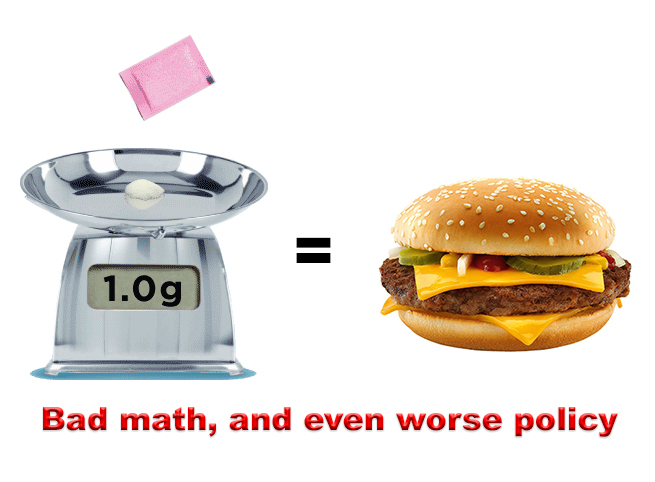

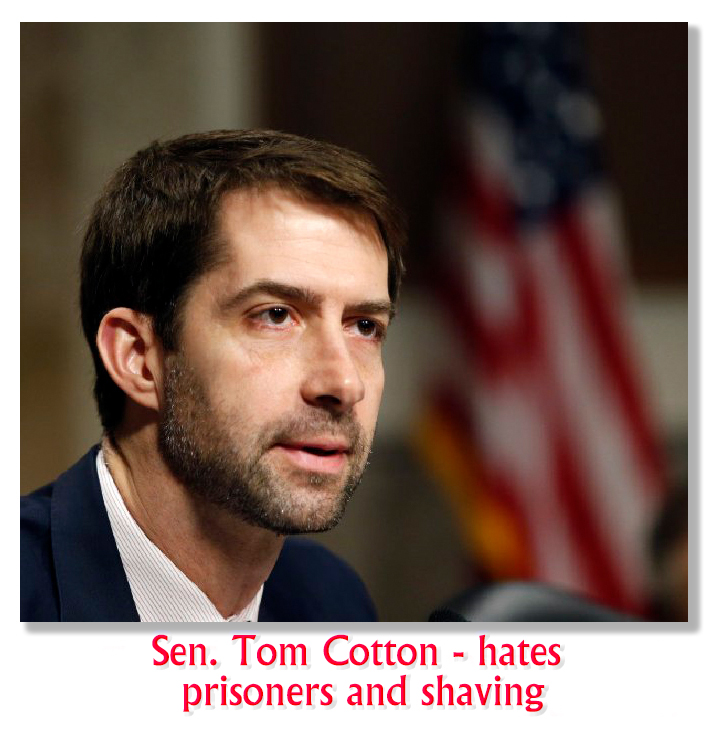


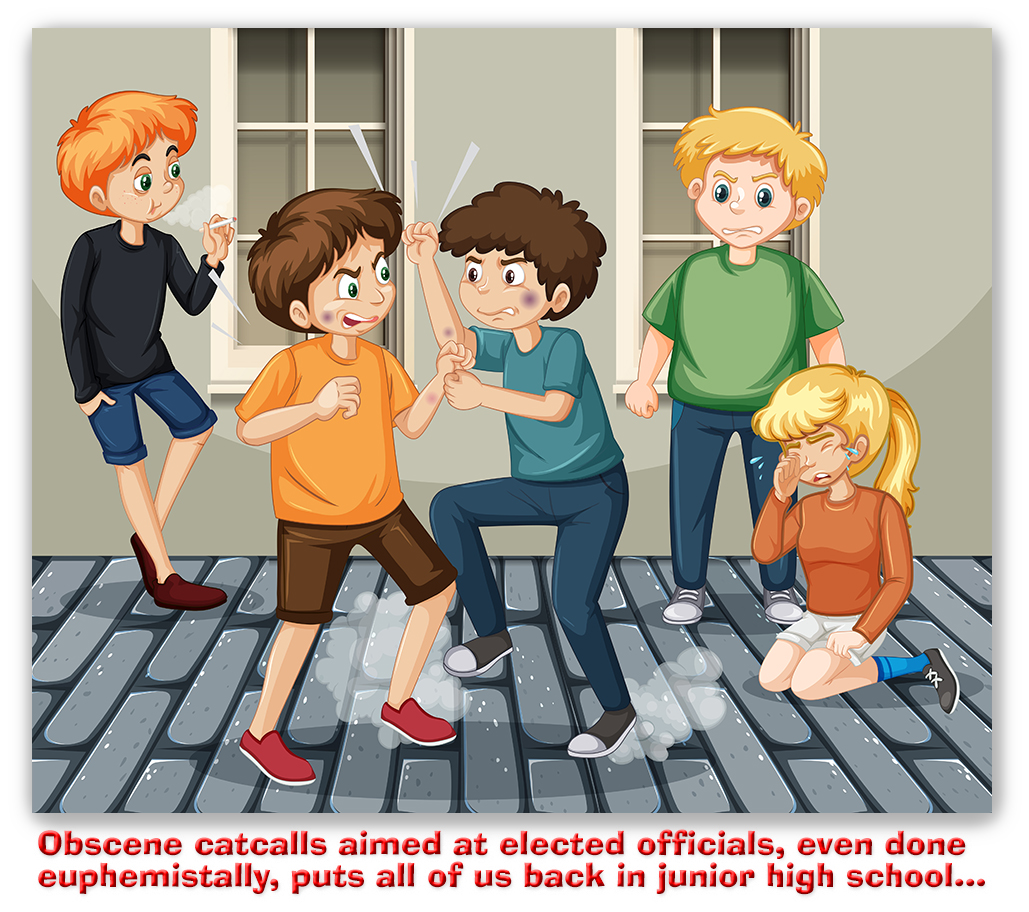



 Perhaps the next BOP director will be candid enough to own what his agency has done or not done with its authority. (See flying pig).
Perhaps the next BOP director will be candid enough to own what his agency has done or not done with its authority. (See flying pig).








